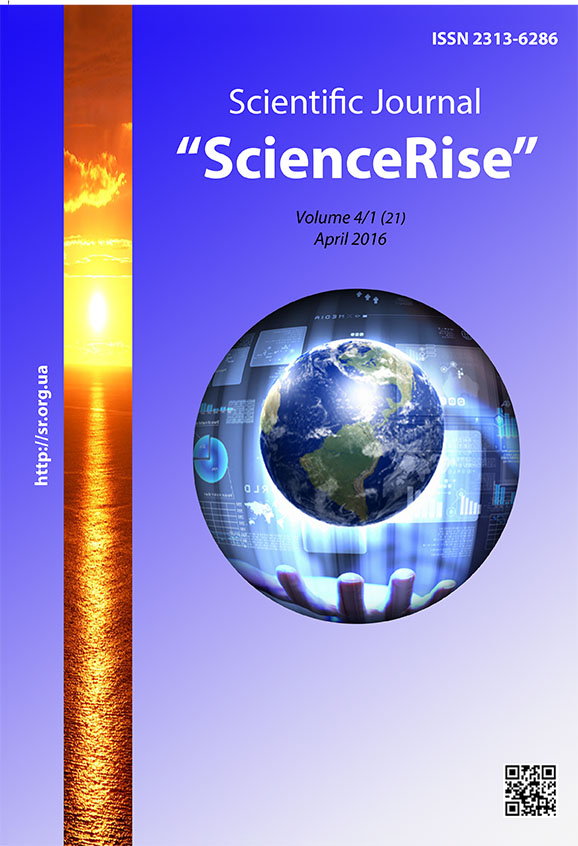Марк Аврелий и идея апофеоза в античной картине мира
DOI :
https://doi.org/10.15587/2313-8416.2016.67547Mots-clés :
Марк Аврелий, апофеоз, божественность, стоицизм, душа, смерть, бессмертие, античная философияRésumé
Идея посмертного апофеоза хороших правителей представляла собой важную часть религиозного сознания античного мира. Божественный Марк Аврелий не верил в бессмертие души, что не мешало ему руководить процессом обожествления своих близких. В статье идет речь как о неявных мотивах этого императора, так и о духовных паттернах его эпохи
Références
Gibbon, E. (1853). The History of the Decline and Fall of the Roman Empire. Vol. I. London: Henry G. Bohn, 522.
Historia Augusta. Vol. I (1991). Cambridge, MA; London: Harvard University Press, 493.
Halapsis, A. V. (2015). On the Nature of the Gods, or Epistemological Polytheism as History Comprehension Method. Evropský filozofický a historický diskurz, 1 (1), 53–59.
Dodds, E. R. (1991). Pagan and Christian in an Age of Anxiety: Some Aspects of Religious Experience from Marcus Aurelius to Constantine. Cambridge, UK: Cambridge University Press, 164.
Forstater, M. (2000). The Spiritual Teachings of Marcus Aurelius. New York: HarperCollins Publishers, 268.
Hadot, P. (1998).The Inner Citadel: The Meditations of Marcus Aurelius. Cambridge, MA; London: Harvard University Press, 351.
Rutherford, R. B. (1989). The Meditations of Marcus Aurelius: A Study. Oxford; New York: Clarendon Press, 282.
Sellars, J. (2012). The Meditations and the Ancient Art of Living. van Ackeren/A Companion to Marcus Aurelius. Chichester, West Sussex, UK: Wiley-Blackwell, 453–464. doi: 10.1002/9781118219836.ch29
Stróżyński, M. (2014). Filozofia jako terapia w pismach Marka Aureliusza, Plotyna i Augustyna [Philosophy as therapy in the works of Marcus Aurelius, Plotinus and Augustine]. Poznań: Wydawnictwo Naukowe Uniwersytetu im. Adama Mickiewicza, 256.
Belliotti, R. A. (2009). Roman Philosophy and the Good Life. Lanham, MD: Lexington Books, 248.
Kovács, P. (2009). Marcus Aurelius’ Rain Miracle and the Marcomannic Wars. Leiden; Boston, MA: Brill, 301.
Antonin, M. A. (1985). Razmyshleniya [Meditations]. Leningrad: Nauka, 245.
Halapsis, A. V. (2015). Urbis et Orbis: Non-Euclidean Space of History. Evropský filozofický a historický diskurz, 1 (2), 37–42.
Chlegel, C. M., Weinfield, H. (2006). Hesiod: Theogony and Works and Days. Ann Arbor: University of Michigan Press, 116.
Lucian (1962). The Works. Vol. V. London; Cambridge, MA: William Heinemann; Harvard University Press, 537.
Halapsis, A. V. (2014). Iovem Imperium, or Sacred Aspects of Roman Globalization. Scientific cognition: methodology and technology, 33 (2), 173–178.
Ovid (1958). Metamorphoses. Vol. II. London; Cambridge, MA: William Heinemann; Harvard University Press, 500.
Plato (1942). Republic. Vol. II. Cambridge, MA; London: Harvard University Press; William Heinemann, 539.
Servius, M. H. (1826). Commentarii in Virgilium. Vol. I. Gottingae: Vandenhoeck et Ruprecht, 593.
Walz, M. D. (2011). Stoicism as Anesthesia. International Philosophical Quarterly, 51 (4), 501–519. doi: 10.5840/ipq201151451
Téléchargements
Publié-e
Numéro
Rubrique
Licence
(c) Tous droits réservés Алексей Владиславович Халапсис 2016

Cette œuvre est sous licence Creative Commons Attribution 4.0 International.
Our journal abides by the Creative Commons CC BY copyright rights and permissions for open access journals.
Authors, who are published in this journal, agree to the following conditions:
1. The authors reserve the right to authorship of the work and pass the first publication right of this work to the journal under the terms of a Creative Commons CC BY, which allows others to freely distribute the published research with the obligatory reference to the authors of the original work and the first publication of the work in this journal.
2. The authors have the right to conclude separate supplement agreements that relate to non-exclusive work distribution in the form in which it has been published by the journal (for example, to upload the work to the online storage of the journal or publish it as part of a monograph), provided that the reference to the first publication of the work in this journal is included.

